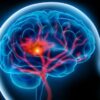Mental abilities may not entirely decline upon aging, according to new research published by Georgetown University Medical Center.
Released in Nature Human Behaviour, researchers identified two key brain functions allowing for the focus of new information and also what’s important in a given situation even when entering older adulthood.
“Many but not all cognitive abilities decline during ageing. Some even improve due to lifelong experience,” the study’s authors explained in their study.
“The critical capacities of attention and executive functions have been widely posited to decline. However, these capacities are composed of multiple components, so multifaceted ageing outcomes might be expected.”
“We tested ageing effects on the alerting, orienting and executive (inhibitory) networks posited by Posner and Petersen’s influential theory of attention, in a cross-sectional study of a large sample of participants aged 58–98,” the authors also stated.
The study included 702 participants. It concluded that efficiency of the alerting network declined with age, but orienting and executive inhibitory efficiency increased, at least until the late 70s.
“Sensitivity analyses indicated that the patterns were robust,” the authors uncovered. “The results suggest variability in age-related changes across attention/executive functions, with some declining while others improve.”


